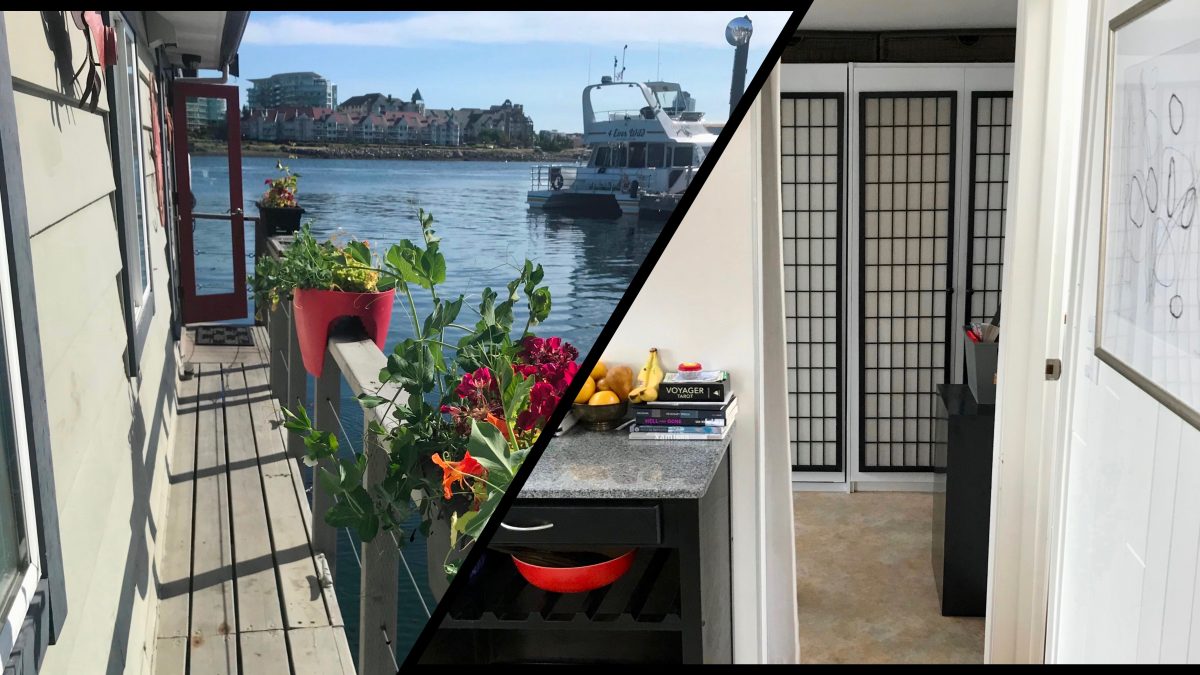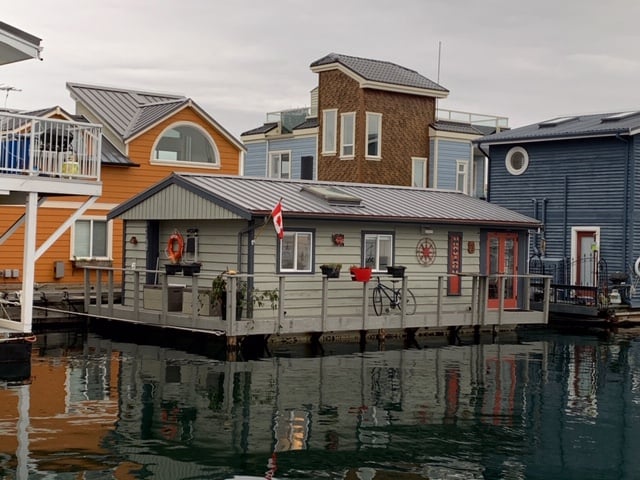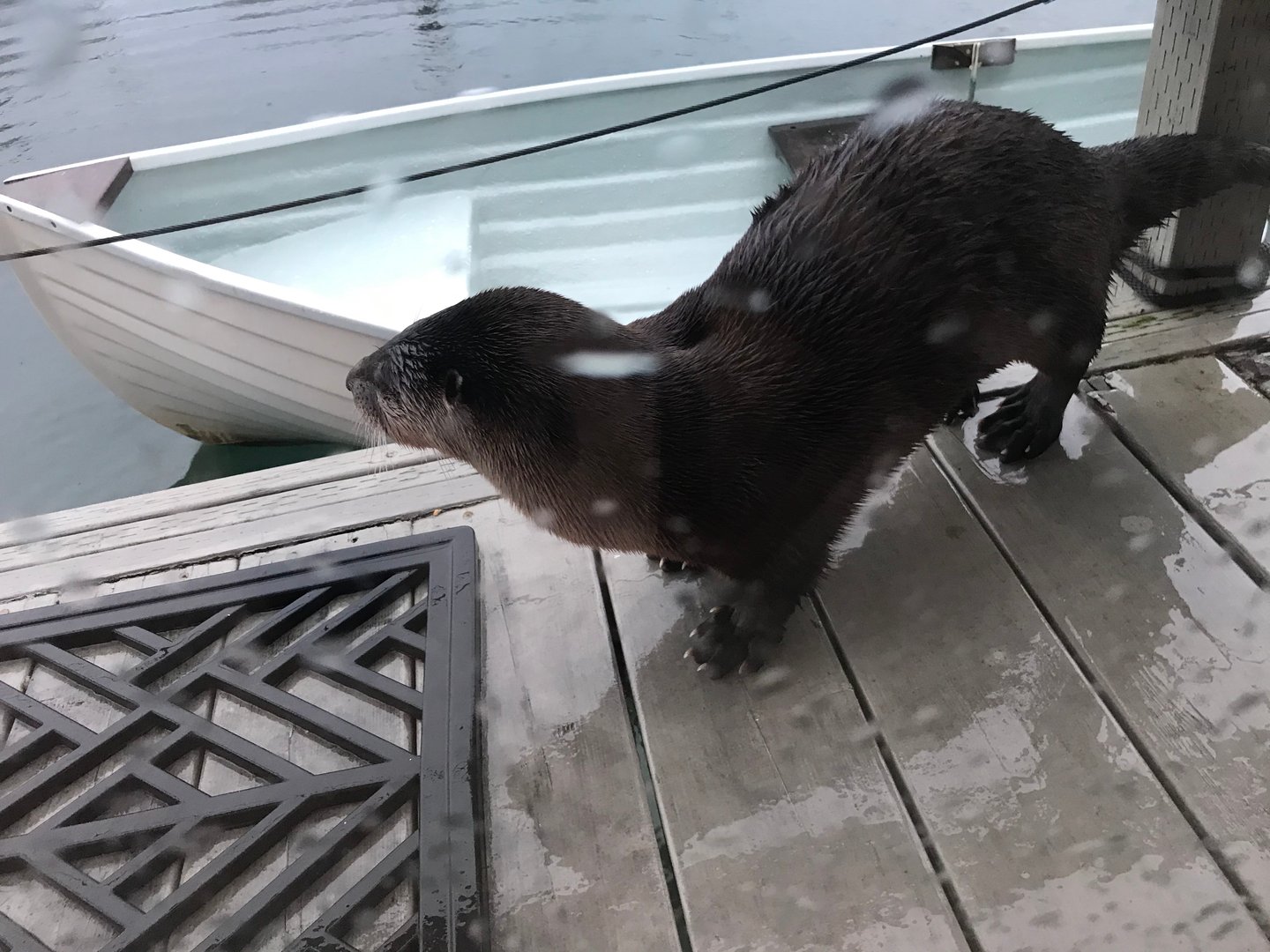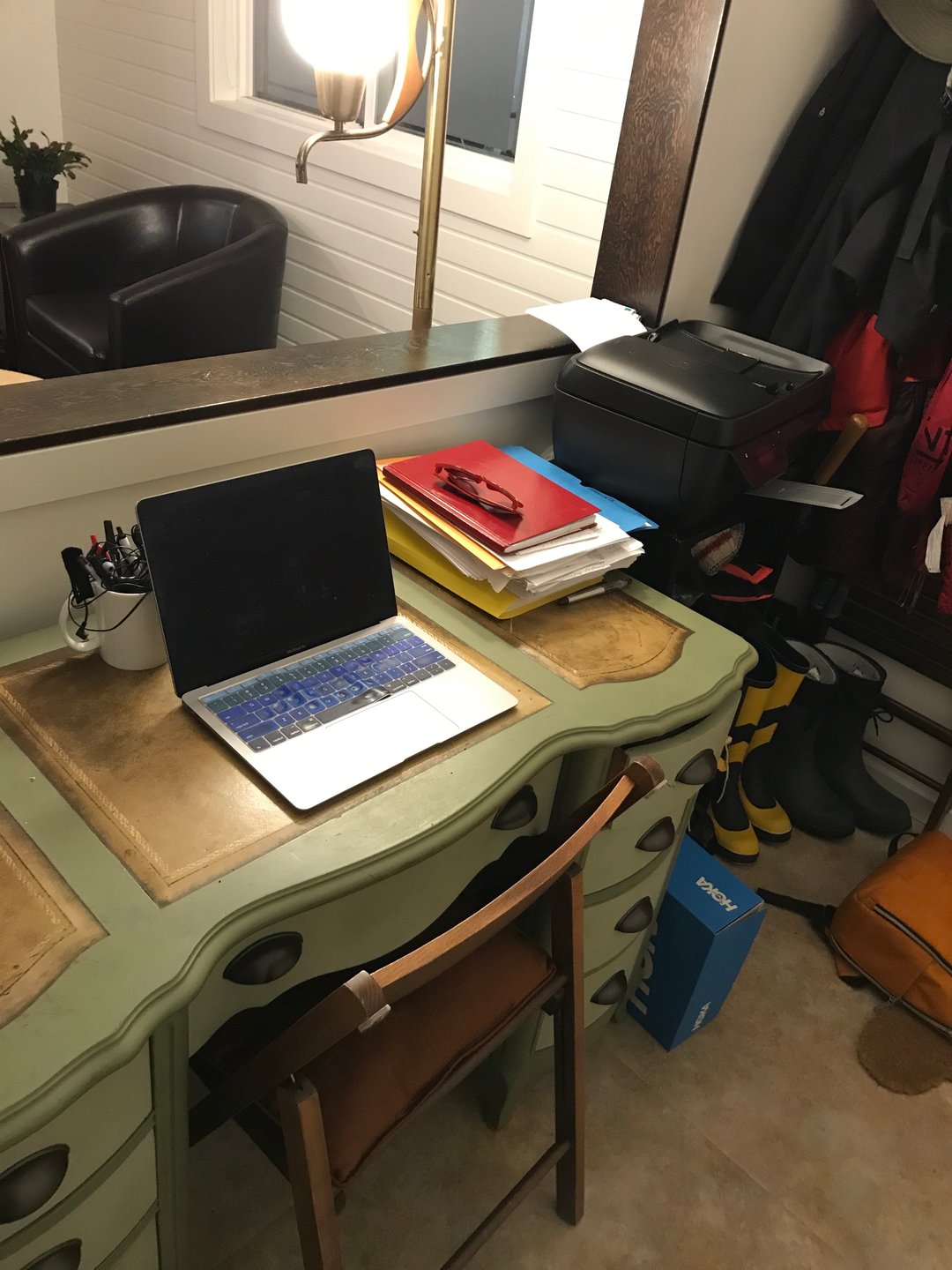Don’t Write Alone Where We Write
The Wet Desk
Smug behind my snug desk, working so far from New York, these many months gave me distance to write about catastrophe in the rest of the world.
Half the year, my desk is in a house boat docked at Fisherman’s Wharf in Victoria, B.C. Sea life pops up out of the ocean just three feet away, but not often, as if admonishing me for their diminishing numbers. At the moment, I’m writing a speculative fiction about the geese that fly over my skylight (and sometimes attempt to nest) and whales whose cries sound like a cross between Martian electro-talk and someone weeping. While the number of animals—of all kinds—have plummeted everywhere, wild geese are being slaughtered across the continent because golf courses are prime habitat for displaced flocks, and we’ve all heard about the problems whales have surviving the anthroposcene.
The location inspires.
Photograph courtesy of the author
A month after I move into our houseboat, I’m awakened in the dark by faint, eerie screeching. There’s a window over our pulled-down Murphy bed that’s screenless (no bugs), and I hang my head out. No giant mammal floats beside us. I lie back down in bed and listen—again, weird singing, those cries. I fall back to sleep. The next day my neighbor tells me about the orca that wandered into Victoria’s harbor the year before, swimming right past our dock. In daylight. And night? I ask. This was before I knew anything other than river otters visit our stretch of water, so I couldn’t have wished the song into being.
Now maybe once a month, a seal pops up, armslength from my desk, dogpaddles for a while—or whatever they do with their tails to seemingly stand on water—and wiggles its whiskers with hope. Forbidden by law the treats they’d begged here for decades, the seals’ only reward are schools of minnows that swarm under our boat, and the occasional crab the river otters miss. Those otters! They might look cute in Disney animations, but some weigh about eighty pounds and wait for me in gangs right outside my door. I always scout the exit before I walk my dog because they took down a lab the next bay over. One stomp from me, and they’re gone. The geese have now abandoned the skylight to congregate below Heron Point, an arm of rock cradling one end of the wharf. When they skip out entirely, pressured by winter weather, they’re replaced by the lone heron the point is famous for, who peers into the water, monitoring the tiny bait, looking much like the writer at her computer.
photograph courtesy of the author
Technically my desk is situated in a float home, not a houseboat, that is to say, it’s a house built on a hull, without the big ass motor of a “Winnebago on water.” It ’ s not going anywhere. Twenty feet from my desk hides my husband’s desk behind the bathroom wall, and in between is the kitchen/dining room/living area, flooded by light from the skylights above and what bounces off the water from the windows. Its six-hundred square feet is much cheaper than anything else with a view—and it doesn’t rock (too much). I’m also not distracted by having to mow the lawn.
During deep Covid, we grew nearly all our vegetables on the railing and in a pocket-garden tacked to the south-facing wall, which I harvested, snow pea by snow pea, by just opening the window. If I run out of ink, I’m only a twenty-minute beach walk to town—we have no car—but if it rains, I can take one of the nearly silent electric water taxis going past my window, or an electric bus. My office displaces no one in terms of land. Really, I’m standing on the wave of the future.
Cities everywhere will eventually be forced to consider permitting populations on water. If not because of flooding, because of space. They’ll extend into bays and coves and lakes, as they have for 7,000 years in Wuzhen, China and for the last four centuries in Ganvie, Benin and for godsake, for the last one hundred and fifty years in Seattle and Sausalito. Uros on Lake Titicaca in Peru has homes that float on reeds that last about thirty years, totally recyclable. I was very pleased to learn that after most of the float homes have finished floating, the styrofoam in the hull can be eaten by mealworms and converted into organic material. For now, long ribbons of kelp grow on the bottom where blooms the occasional giant sea anemone, a garden I don’t have to water.
Like any New Yorker, I thought that when we bought the place, we were merely acquiring a living/work space with a dock as a sidewalk. But here, all forty or so fellow float-home owners smile a lot—okay, they’re Canadians—and help each other tie up their boats; raise money for the sockless, homeless in Victoria; hang a special Christmas star where the wharfy with dementia can see it; and when my husband broke his ankle, they helped us walk our new puppy. They also put up a little library at the head of one dock so people could share what they read. Because they read.
Photograph courtesy of the author
Smug behind my snug desk, working so far from New York, these many months gave me distance to write about catastrophe in the rest of the world. But like the New Yorker cartoon of a flaming earth captioned with “I guess it’s too late to move to Canada,” the country and its waters also struggle with the effects of late capitalism, or what we hope is late. My husband has put out herring screens for the last two years to encourage the fish to return, which should attract more orcas and plenty of other grazers. But no foamy white spray of herring eggs have appeared. The fish store across the park used to sell the herring by the bucketful, but the catch has been progressively far less bountiful. I’ve just read that one billion Alaskan crabs have died in the last few years, though they’re still being pulled out of these waters. The fish store participates in a yearly festival that promotes sea life at the wharf that attracts hundreds of tourists, but not more from the sea.
The tourists come because little wildlife comes to them. Seeing we’re not alone in nature is the prime attraction. They tap on my window over my desk as if I’m some kind of caged animal myself. Where did I write before? The float home is the same size as our New York apartment, which we sublet to pay for the above. But I’m the eldest of nine kids, I can—and do—write anywhere. No mere whale is going to bother me.



